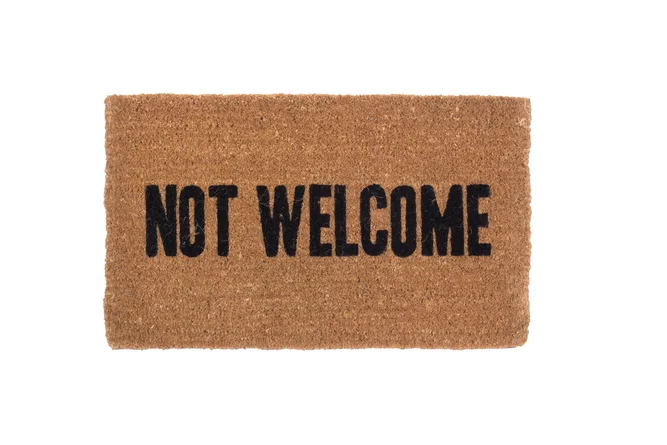What is a Squatter?
Squatters are individuals or groups who take up residence in a property without the owner’s permission. They can be found in urban and rural areas and may want affordable housing or be involved in criminal activity.
Under certain conditions, squatters have legal rights, such as openly squatting or claiming adverse possession. They might occupy empty buildings, homes or land – for survival or a political statement. It can be hard to evict squatters if they have lived there for 12+ years and made improvements to the space.
Squatters have played a major part in the settlement of unclaimed territories in the US, with the government giving them land grants. But today, squatting is usually illegal worldwide. Who knew that squatting could come with legal rights? It’s like turning the system on its head – one neglected property at a time!
Squatter’s Rights: Understanding the Legal Aspects
To understand the legal aspects of squatter’s rights, delve into adverse possession, a legal concept that governs the possession of property belonging to another person. Learn about the requirements for adverse possession to be established and defenses against adverse possession claims.
The Concept of Adverse Possession
Adverse possession, or “squatter’s rights,” is a concept recognized in some countries’ legal systems. After a certain amount of time, and conditions are met, the person occupying the land or property could legally become its owner.
Ownership through adverse possession occurs through long-term use, not buying or inheriting. Requirements include continuous, open, notorious, exclusive, and hostile use for years, plus proof of paying property taxes.
It’s not straightforward to obtain ownership this way. But, abandoned properties and unclear boundaries could make claiming successful.
Pro Tip: It’s essential to understand your state’s laws and get advice from a real estate attorney before attempting adverse possession. Then you can claim ownership of your new home with ease!
Requirements for Adverse Possession to be Established
To gain adverse possession, certain conditions must be met. The five main essentials are:
- Actual Possession – having the property and using it in conflict with the original owner’s use.
- Open & Notorious Possession – visible and obvious use of the property.
- Hostile Possession – no permission or consent from the rightful owner.
- Continuous Possession – ownership for a set period of time.
- Exclusive Possession – completely exclusive use without sharing.
Plus, some states may require extra criteria like paying taxes and recording evidence of ownership publicly.
If worries come up, get help from an experienced lawyer.
Squatters are not always easy to get rid of – just like the earwigs in my kitchen sink!
Defenses against Adverse Possession Claims
When it comes to protecting yourself from an adverse possession claim, there are several factors to consider. These include having a clear record of ownership and disproving the necessary parts of the claim. Let’s look at some defenses.
| Defense | Description |
| Possession not Adverse | Showing the occupation was not exclusive and was given permission by the owner. |
| No Continuous Possession | Providing evidence of no continuous use for the required period. |
| Incomplete Control or Use | Showing the possession did not meet all requirements, as seen by insufficient tenure, recognition or other factors. |
Your personal situation may cause other factors to influence your defense strategy. It is worth noting that even if you succeed in defending yourself against an adverse possession claim, you may not have to pay costly legal fees. Some courts offer ways to punish people who make baseless or frivolous claims against owners.
One homeowner managed to protect themselves successfully from a claim of adverse possession because of their careful record-keeping and signs telling trespassers to leave. While this may not always work, it is an example of how being ready helps in unexpected ways.
Fending off squatters is like playing Whac-A-Mole: just when you think they are gone, they appear somewhere new.
How to Deal with Squatters
To deal with squatters and protect your property from illegal occupation, legal and non-legal methods are two solutions that you can consider. If you are having trouble with squatters, understanding the legal options for property owners and the non-legal methods to remove squatters are important sub-sections to take into account.
Legal Options for Property Owners
Property owners must grasp their legal options when dealing with squatters. This may include filing a trespassing report, court-ordered eviction, or hiring an attorney. It’s essential to abide by all laws and regulations. Consulting experts like a real estate attorney or local law agency is recommended. Recording all communication with squatters can help strengthen the case.
Never take matters into your own hands. Don’t resort to physical force, coercion, or harassment. Such actions could lead to legal penalties and damage your reputation. If needed, dismantle any illegal structures on the property. And if all else fails, try disguising yourself as a ghost to scare them away!
Non-Legal Methods to Remove Squatters
Combatting squatters doesn’t always have to be done through legal action. Here are some alternative methods you can try:
- Communicate with them. Explain why their presence is a problem for both of you.
- Offer incentives or money to encourage them to leave.
- Change the locks on doors and windows to make sure they can’t get back in.
- Report to local authorities like the police or councilors.
Though these methods may not always work, it’s best to get professional help to ensure the squatters are removed quickly. Don’t delay legal processes – this could lead to more trouble. Get help from experts who specialize in squatter removal to avoid losing your property.
Vampires have nothing on squatters – they only come out at night and will drain the life out of your property!
Precautions to Prevent Squatting
To prevent squatters from occupying your unoccupied property, you need to take certain precautions. In this section, we will discuss the necessary security measures that will help ensure the safety of your property. Additionally, we will briefly explore the importance of maintaining and monitoring your property to prevent any unauthorized entry and squatting.
Security Measures to Secure Unoccupied Property
Protect your unoccupied property! Here are some steps to take:
- Install alarms or CCTV
- Lock or shutter entry points
- Make sure lighting is sufficient
- Hire security to check & patrol
More security? Try motion sensors, smart tech, and a property management team. These steps not only protect against squatting, but also safeguard valuable items. Don’t wait until it’s too late. Secure your property now. Risks are high, so precautions are needed!
Wish protecting property was as easy as keeping guests off the couch!
Maintenance and Monitoring of Property
Property Preservation Techniques
Property owners, landlords and tenants must maintain and uphold property value. Property preservation includes updating, repairing, cleaning and monitoring buildings’ interior and exterior for safety and quality accommodation. A systematic check-up not only increases its market price but also creates a hygienic environment for inhabitants.
Utilization of Technological Solutions
Sensors, security cameras and weather alerts are some technological tools that can monitor property condition in real-time with minimum effort. Check-ups on HVAC systems (Heating, Ventilation, and Air Conditioning) assure clean air circulation, preventing mold growth which is a health hazard. Upgrading water supply and drainage systems leads to optimal resource usage, avoiding wastage.
Successful Maintenance Management
Hire a professional technician for regular pest control to save money and hassle from property damage caused by pests. An effective garbage disposing system prevents littering problems while offering a clean environment. Following maintenance schedules for minor repairs prevents costly fixations.
Pro Tip: Regular inspection finds minor issues before they turn into major problems.
Understand squatting rights. Otherwise, your home could become a multi-occupancy nightmare.
Conclusion: Importance of Understanding Squatter’s Rights.
Understand squatters’ rights to protect yourself and your property! Take proactive steps to avoid being unlawfully ousted. Asserting legal ownership and taking timely action can save you from unwelcome occupants. Seek legal advice and guidance for any significant decisions related to illegal occupants. Failing to adhere to the law may lead to unwanted consequences. Empower yourself by getting adequate knowledge about squatter’s rights.
Be aware of certain scenarios where squatter’s rights may apply. Example: Abandoning your property for an extended period without asserting ownership can result in a squatter claiming adverse possession after fulfilling certain criteria. Secure your property and don’t leave it open for misuse by uninvited individuals.
Install security systems such as cameras, alarms, fences and gates. Hire professionals such as caretakers or managers if you own multiple properties to deter potential squatters. Safeguard your investment from unlawful occupation. Familiarize with laws governing squatters’ rights in your region. Take all necessary steps to prevent unlawful occupation of your land.
Preventative measures are more effective than reactive approaches when dealing with squatting. Be proactive today!
Frequently Asked Questions
What is a squatter?
A squatter is someone who occupies a property without the owner’s consent. They may live in abandoned buildings, vacant land, or even in someone else’s property without a lease agreement.
What are squatter’s rights?
Squatter’s rights are legal protections afforded to people who have been occupying a property for an extended period of time. These rights can vary depending on the location, but typically they include the right to possession, the right to prevent eviction without due process, and sometimes even the right to claim ownership of the property.
How long do you have to squat in a property to claim squatter’s rights?
The amount of time required to claim squatter’s rights varies depending on the jurisdiction. In some states, a squatter can claim adverse possession after as little as a few years of occupation, while in others it can take up to 20 years.
What is adverse possession?
Adverse possession is a legal doctrine that allows someone who has occupied a property for an extended period of time without the owner’s permission to claim ownership of the property. The requirements to establish adverse possession vary from state to state, but generally they include continuous and open use of the property, without the owner’s permission, for a certain number of years.
Can squatters be legally evicted?
Yes, squatters can be legally evicted. However, the process of evicting a squatter can be more complicated than evicting a tenant because squatter’s rights may need to be considered. Property owners must follow the legal process for eviction in their jurisdiction, which can include providing notice to the squatter and going to court.
Are squatters protected by any laws?
Squatters are protected by some laws in certain circumstances. Depending on the jurisdiction, the law may protect them from eviction without due process or from being physically removed from the property. However, if the property owner has a valid claim to the property and follows the proper legal process for eviction, the law will generally side with the owner.
Dave is a seasoned real estate investor with over 12 years of experience in the industry. Specializing in single-family residential real estate, David’s strategic approach combines market analysis, financial acumen, and a deep understanding of urban development trends to maximize investment returns.










